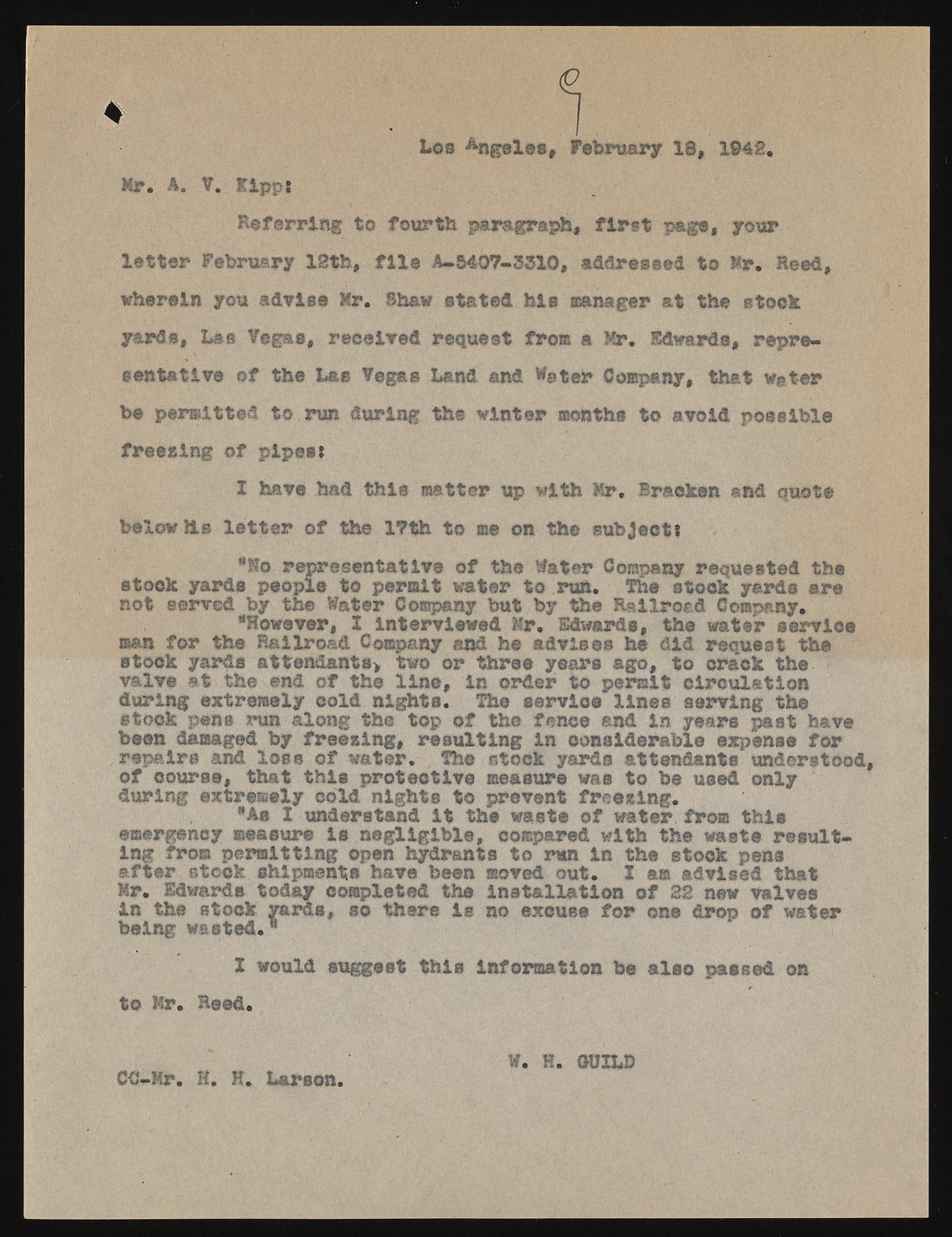Copyright & Fair-use Agreement
UNLV Special Collections provides copies of materials to facilitate private study, scholarship, or research. Material not in the public domain may be used according to fair use of copyrighted materials as defined by copyright law. Please cite us.
Please note that UNLV may not own the copyright to these materials and cannot provide permission to publish or distribute materials when UNLV is not the copyright holder. The user is solely responsible for determining the copyright status of materials and obtaining permission to use material from the copyright holder and for determining whether any permissions relating to any other rights are necessary for the intended use, and for obtaining all required permissions beyond that allowed by fair use.
Read more about our reproduction and use policy.
I agree.Information
Digital ID
Permalink
Details
More Info
Rights
Digital Provenance
Publisher
Transcription
Los Angeles, February 18, 1942. M r. A. V . K ipps Referring to fourth paragraph, first page, your ? letter February 12th, file A-5407-3310, addressed to Mr* Reed, wherein you advise Hr. Shaw stated M s manager at the stock yards. Las Vegas, received request from a Mr. Edwards, representative of the Lae Vegas Land and Meter Company, that water be permitted t© run during the winter months to avoid possible freezing of pipes* I have had this matter up with Mr. Bracken and quote below.Us letter of the l?th to me on the subjects *Mo representative of the Water Company requested the stock yards people to permit water to run. The stock yards ere not served by the Water Company but by the Railroad Company, “However, 1 interviewed Mr, Edwards, the water service man for the Railroad Company and he advises he did request the stock yards attendants* two or three years ago, to crack the valve at the end of the line, in order to permit circulation during extremely cold nights. The service lines serving the stock pens run along the top of the fence and in years past have been damaged by freezing, resulting in considerable expense for repairs and loss of water. The stock yards attendants understood, of course, that this protective measure was to be used only during extremely cold nights to prevent freesing. “As I understand it the waste of water, from this emergency measure Is negligible, compared with the waste resulting from permitting open hydrants to run in the stock pens after stock shipments have been moved out. I am advised that Mr. Edwards today completed the installation of 22 new valves in the stock yards, so there is no excuse for one drop of water being wasted." X would suggest this Information be also passed on to Mr. Reed. CC-Kr. K. H. Larson. w. H. CHILD

